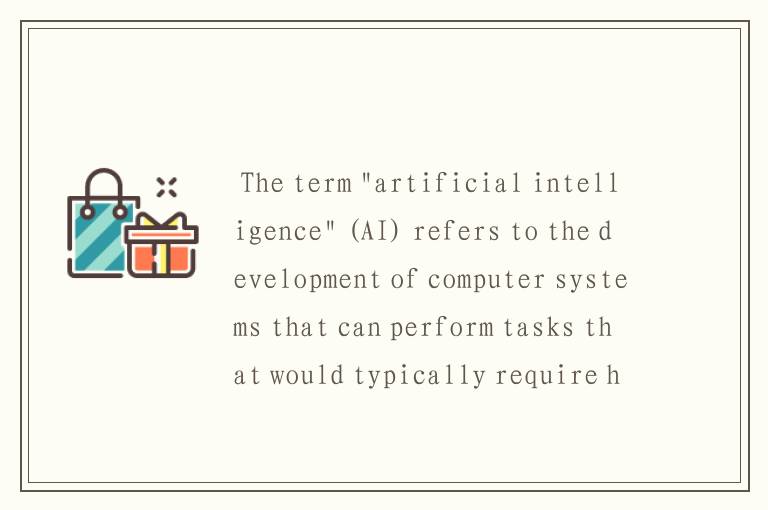尼桑御轩

The term "artificial intelligence" (AI) refers to the development of computer systems that can perform tasks that would typically require human intelligence. This includes tasks such as speech recognition, decision-making, problem-solving, and pattern recognition.AI systems are designed to learn from data and adapt their behavior based on that learning. This is often done through the use of machine learning algorithms, which allow the system to analyze large amounts of data and identify patterns or make predictions based on that data.There are several different types of AI systems, including narrow AI and general AI. Narrow AI refers to systems that are designed to perform specific tasks, such as playing chess or driving a car. General AI, on the other hand, refers to systems that can perform any intellectual task that a human can do.AI has a wide range of applications across various industries and sectors. For example, in healthcare, AI systems can be used to analyze medical images and assist with diagnosis. In finance, AI can be used to analyze financial data and predict market trends. In manufacturing, AI can be used to automate processes and improve efficiency.However, AI also raises ethical and societal concerns. For example, there are concerns about the potential for AI systems to replace human workers, leading to job displacement. There are also concerns about privacy and data security, as AI systems often require access to large amounts of personal data.Overall, AI has the potential to revolutionize many aspects of society, but it is important to carefully consider the ethical implications and ensure that AI systems are developed and used responsibly.
明白尼桑御轩的一些要点,希望可以给你的生活带来些许便利,如果想要了解其他内容,欢迎点击紫薯百科的其他栏目。
声明:本站所有文章资源内容,如无特殊说明或标注,均为采集网络资源。如若本站内容侵犯了原著者的合法权益,可联系本站删除。





